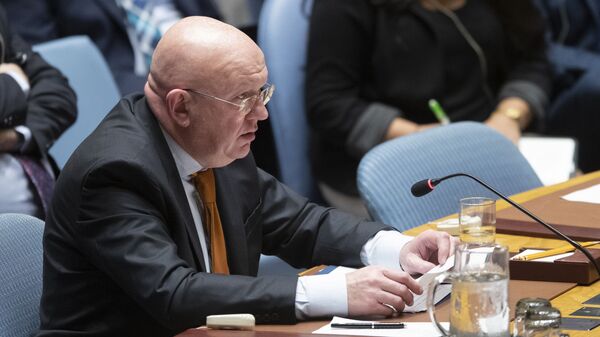"The [OPCW] Technical Secretary is becoming more and more an instrument of the West in its information and political pressure on undesirable countries," Nebenzia said on Monday. "This conclusion reinforces the [OPCW Technical] Secretariat’s involvement in the anti-Russian campaigns. We saw this earlier in the case of the Skripals, questions about which are still in the air and have remained unanswered. Today, the same is unfolding before our very eyes around the alleged poisoning of Navalny in Russia."
Nebenzia pointed out that, at the first call for technical assistance from Western countries, the OPCW Technical Secretariat "obediently launches an investigation in the way in which political conclusions have already been drawn regarding the presence of some irrefutable evidence."
Earlier on Monday, Belgium, France, Germany, Estonia, the United Kingdom, and the United States objected to OPCW Director-General Jose Bustani participating in the UN Security Council meeting. Russia invited Bustani to brief the UN Security Council on allegations that chemical weapons have been deployed in Syria.
Bustani, a Brazilian diplomat, led the OPCW from 1997 to 2002, and served as the organization’s first director-general. His early departure from the OPCW was on the initiative of the United States.
Bustani said the United States expressed dissatisfaction with his work after he invited Iraq to join the OPCW, given that membership would prevent US plans to overthrow Saddam Hussein.
Nebenzia presides over the UN Security Council during the month of October.




